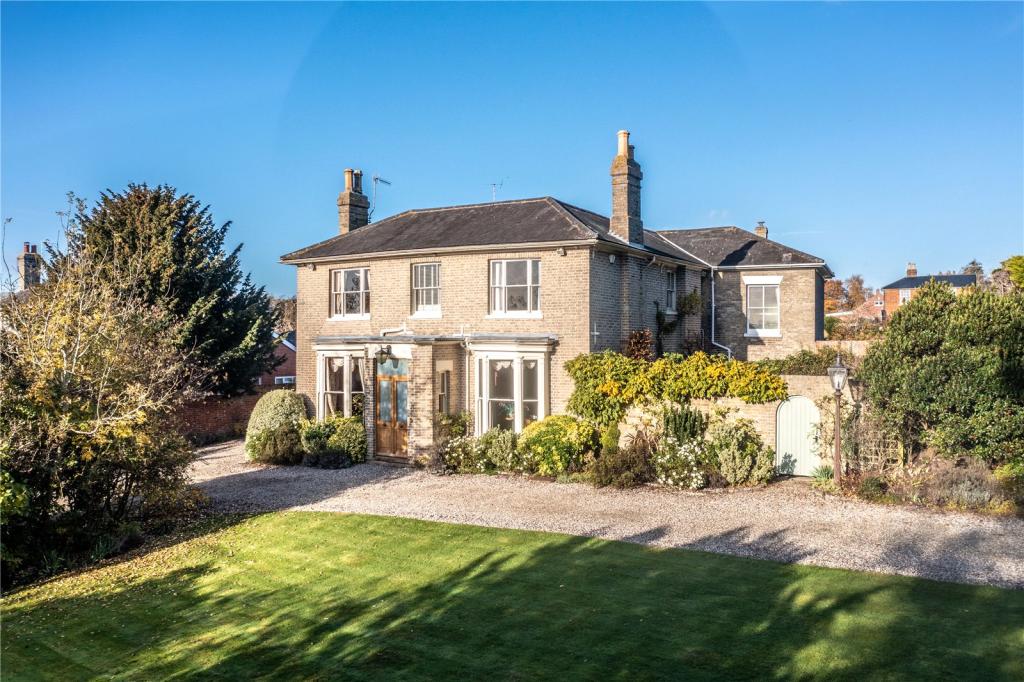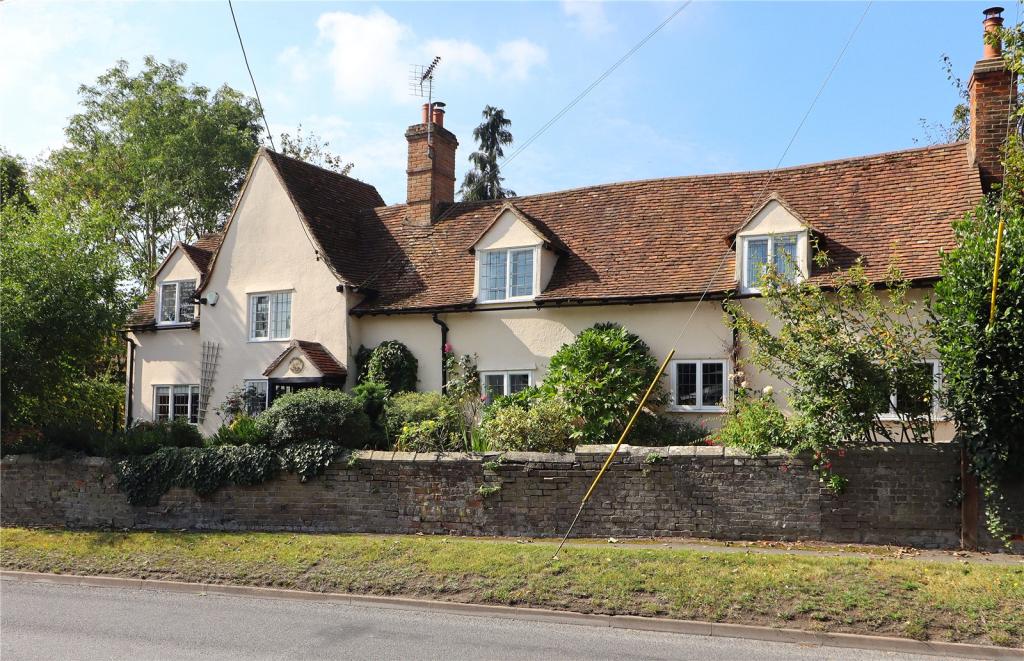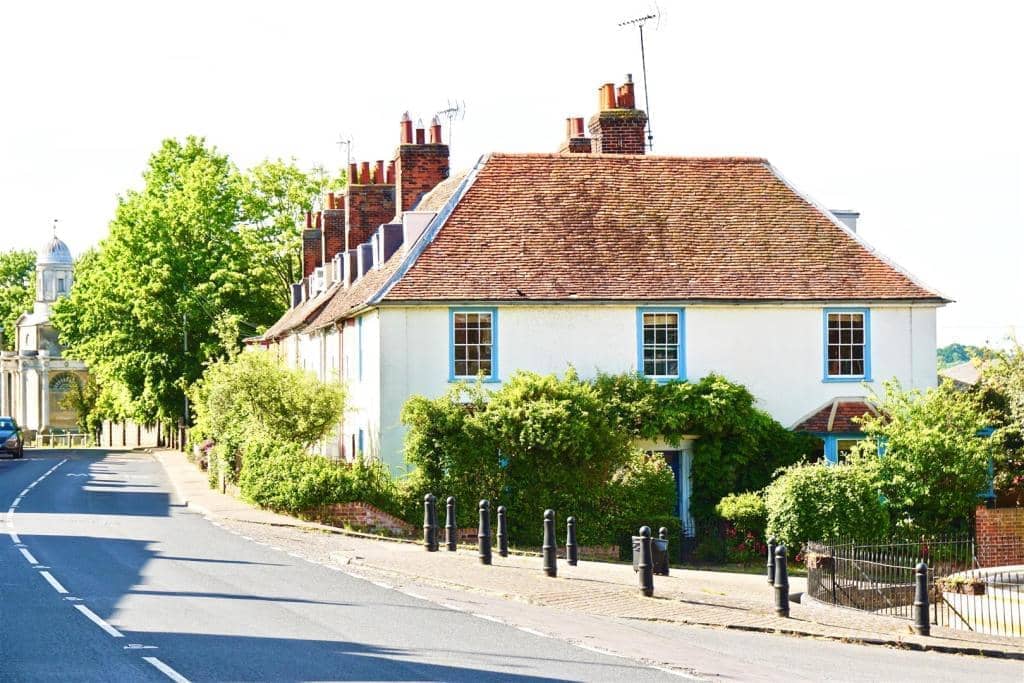That Essex County Council is spending £300,000 on an advertising campaign to rehabilitate its reputation can’t come as a surprise. The only surprise is that it didn’t think to do it before – or that somehow they believe £300,000 is enough to turn the tide. As far as I can tell, £300,000 won’t touch the sides. And in a strange way, I’m glad. Because Essex, as Britain’s most underrated county, is something of an undiscovered haven for ex Londoners like me.
Don’t believe me? Let’s do a test: if I say the word ‘Essex’ to you, what images come to mind? The cast of Birds of a Feather, perhaps? The boy band Bros, a Mark III Ford Escort and perhaps Sir Alan Sugar?
If you’re under 35 then Essex may summon thoughts of the television programme TOWIE, populated by orange-fleshed folk blessed with strange teeth.
But if you can overcome the cultural bastions of dental work and silicone, then I invite you to re-evaluate what you think you know about Essex.
Essex boasts seaside towns that make even Devon blush. Several of the greatest piers of the realm – at Clacton, Walton and Southend on Sea – belong to Essex. Frinton-on-Sea, a place where the clock stopped in 1955, is a jewel of the coast. Stroll along it’s a perfect high street and you are to be transported to a pre-decimal world. It’s a joy. The Victoria and Albert Museum needs to build a new floor to house Frinton’s high street. And while they’re at it they should make a cast of the 86ft-tall Naze Tower, an old navigation light overlooking the North Sea: built in 1722 in brick, this is Essex’s answer to the leaning Tower of Pisa, but without the lean. Go there, and then on the cliffs below see if you can find three-million-year old Megalodon’s tooth. Or if that doesn’t float your boat, head to the Alma at Harwich and gorge yourself on the freshly landed lobster.
The marvels of Essex are mostly unknown to anyone outside of the county, meaning there’s value to be had here. Take the charming town of Manningtree, where I moved to last year, it’s just 55 minutes on the Norwich train from London and it’s so pretty it’s positively a gift to landscape painters, one of whom lives next door. I’ve mentioned Colchester – it’s a little Winchester parked on England’s eastern approaches: and it’s just 46 minutes from London on the train, of which there are apparently 147 a day. Then there’s Chelmsford, the county town where radio was invented, with top-notch state schools, just 30 minutes from the capital. According to Zoopla the average prices for a detached house in places like Manningtree, Colchester or Chelmsford is £420k, £473k and £598k respectively (with semis flying off the shelves from £296k, £316k and £412k). And with remote or hybrid working taking the sting out of the season ticket, what’s not to like?

Indeed, Essex deserves to be celebrated, not denigrated. Within an hour of London on the train, and bordered to the north by the River Stour – which don’t forget gave us Constable’s Hay Wain – in the south by the Thames, Essex is virtually an island appended to the east of England. It’s bigger than you think, too. At 979,000 square kilometres it’s the same size, give or take, as Hampshire or Lancashire and with 350 miles of coast only Cornwall has more sea to shout about.
And yes, it is flat, but flatness is not antithetical to beauty: look at Holland. John Betjeman praised Essex for its ‘sweet uneventful countryside’, and he had a point. It’s like Sussex without hills.
What’s more this uneventful countryside pays host to rather special microclimate. Did you know, for instance, that Essex is fast becoming the wine-growing capital of Britain? Yep. There are now so many vineyards crowded on the shores of the River Crouch that ‘Crouch Valley’ is emerging a wine region in right. Move over Burgundy, the terroirs of Essex have arrived.

For foodies, Essex is also spot on for oysters, which have been cultivated on the River Blackwater since the days of the Romans, which brings me to another of Essex’s wonders – its history. Not only was it the capital of Roman Britain (though Colchester, which has a super castle, is still fighting to be recognised as a city) but Essex – don’t forget – was a constituent of the original Anglo-Saxon Heptarchy. The Kingdom of the East Saxons emerged in the sixth century from the ashes of Roman Britain, and was absorbed into Wessex in 825. His name was Sigered and he’ll be on Netflix one day.
Essex also spawned one of the earliest recorded works of English literature – the 325-line poem, The Battle of Maldon, a tiny Iliad from beyond Basildon. It tells the story of the heroic defeat by the Saxons under the command of the ealdorman of Essex, Byrtnoth at the hands of the Vikings in 991. What’s more, a resident of England’s smallest town, Manningtree, inspired one of Shakespeare’s greatest creations, Sir John Falstaff – ‘that roasted Manningtree ox with the pudding in its belly’ (Henry IV Part 1). This same town was also where a young Margaret Thatcher worked as a chemist – and lays claim to being the home of John Hopkins, the witchfinder general who put hundreds of alleged witches to death in the 1640s. You’d think that combination would be a gift for advertisers.
And then there’s Essex’s Saxon churches – there’s so many of them, they’re like traffic cones in Surrey. You could fill a year of Sundays visiting the likes of St Peter’s in Boxted (built in the 12th century using Roman bricks) or Greensted Church, which claims to be the oldest wooden church in the world. So don’t tell me Essex is a cultural desert.
Of course Essex needs more than £300,000 to undo the damage of the last 30 years to its reputation. It needs millions to overcome the decades of abuse since Simon Heffer invented ‘Essex man’ as an exemplar of Thatcher’s core vote in 1990 (‘right wing, keen hanger, noisily rambunctious, no subtlety’).
But things are changing. The term ‘Essex girl’, which appeared in the Oxford English Dictionary defined as ‘a type of young woman, supposedly to be found in and around Essex, and variously characterised as unintelligent, promiscuous and materialistic’, was withdrawn 2020. It should never have gone in.
And this is just the start. Essex is a gem; yes, it has its rough diamonds but that’s not unique. If you don’t believe me, get in the car. Punch Thaxted, Wivenhoe or Frinton into your satnav and you will experience many things, but disappointment will not be one of them. You will find, as Betjeman wrote in his collection of poems from 1954, ‘the deepest Essex few explore/ Where steepest thatch is sunk in flowers/ And out of elm and sycamore/ Rise flinty fifteenth-century towers.’






Comments